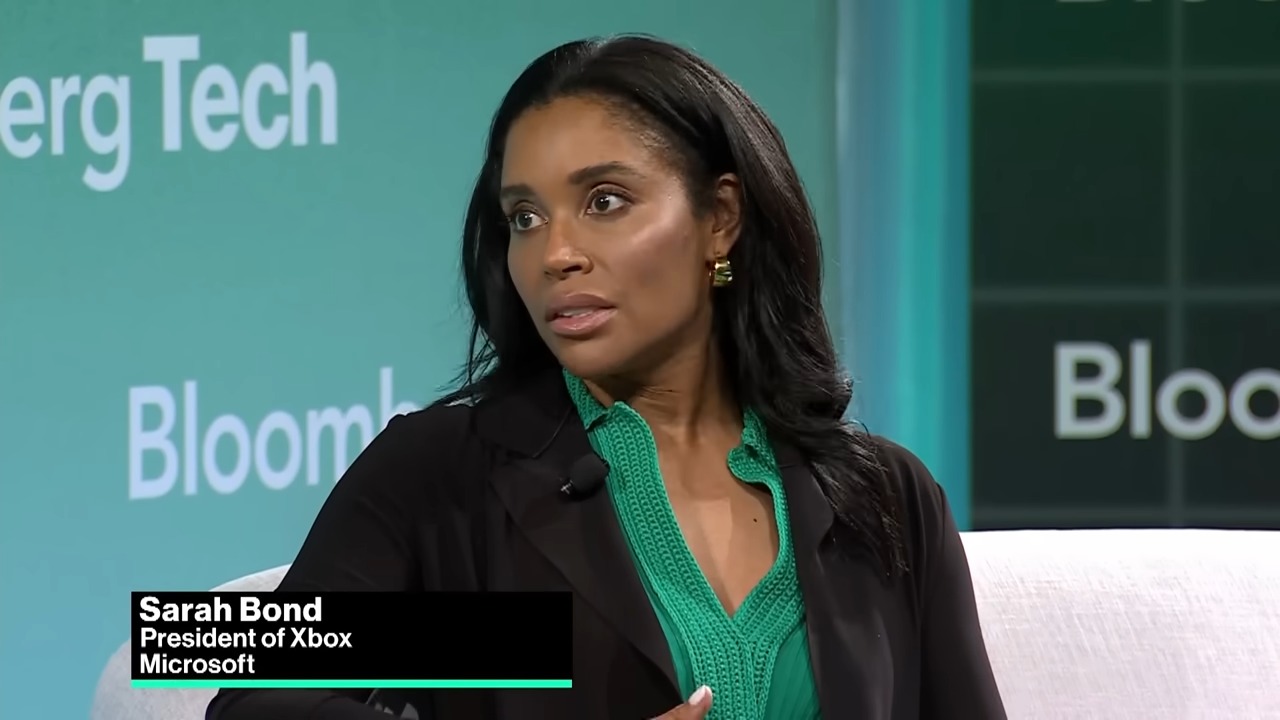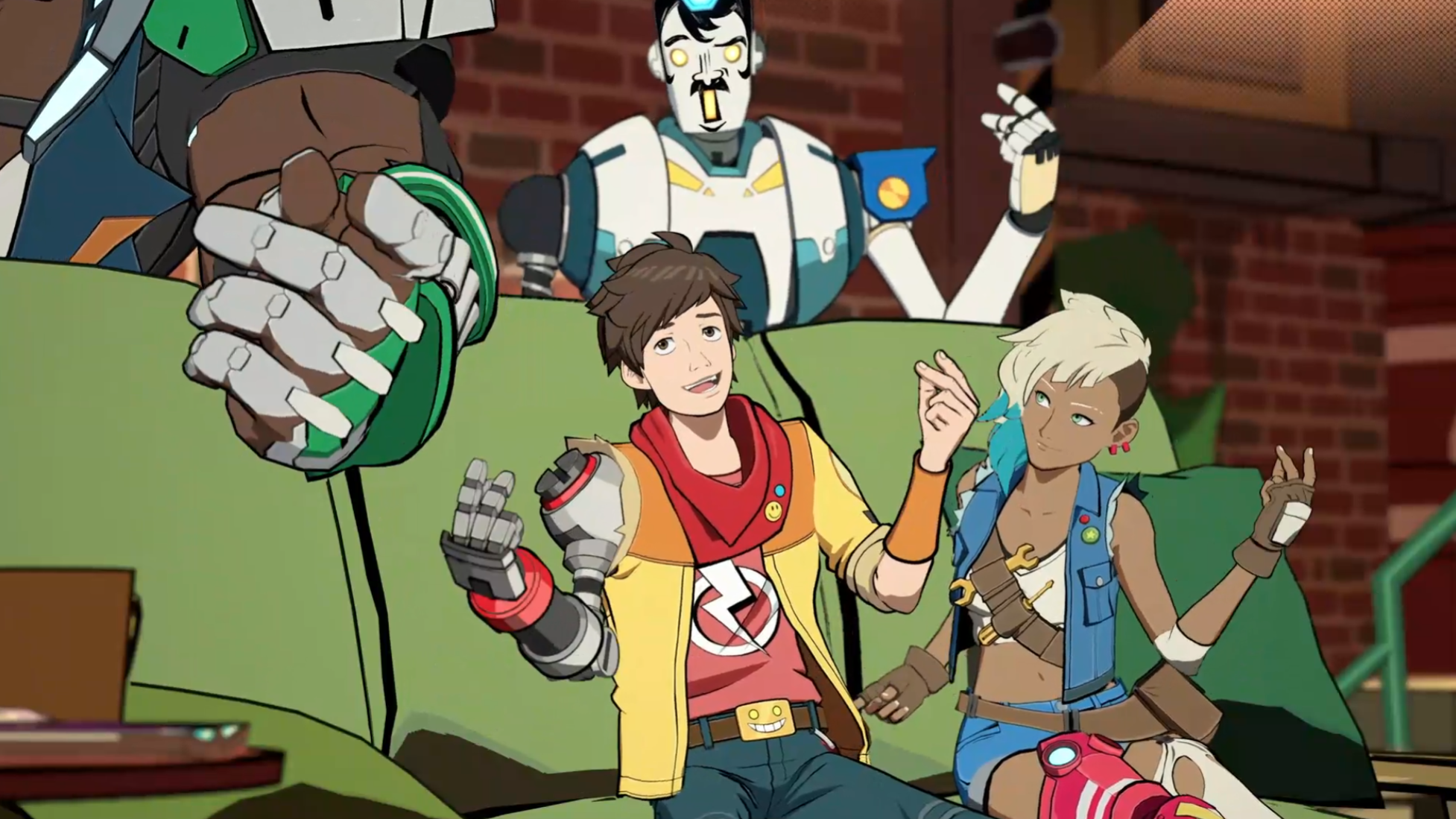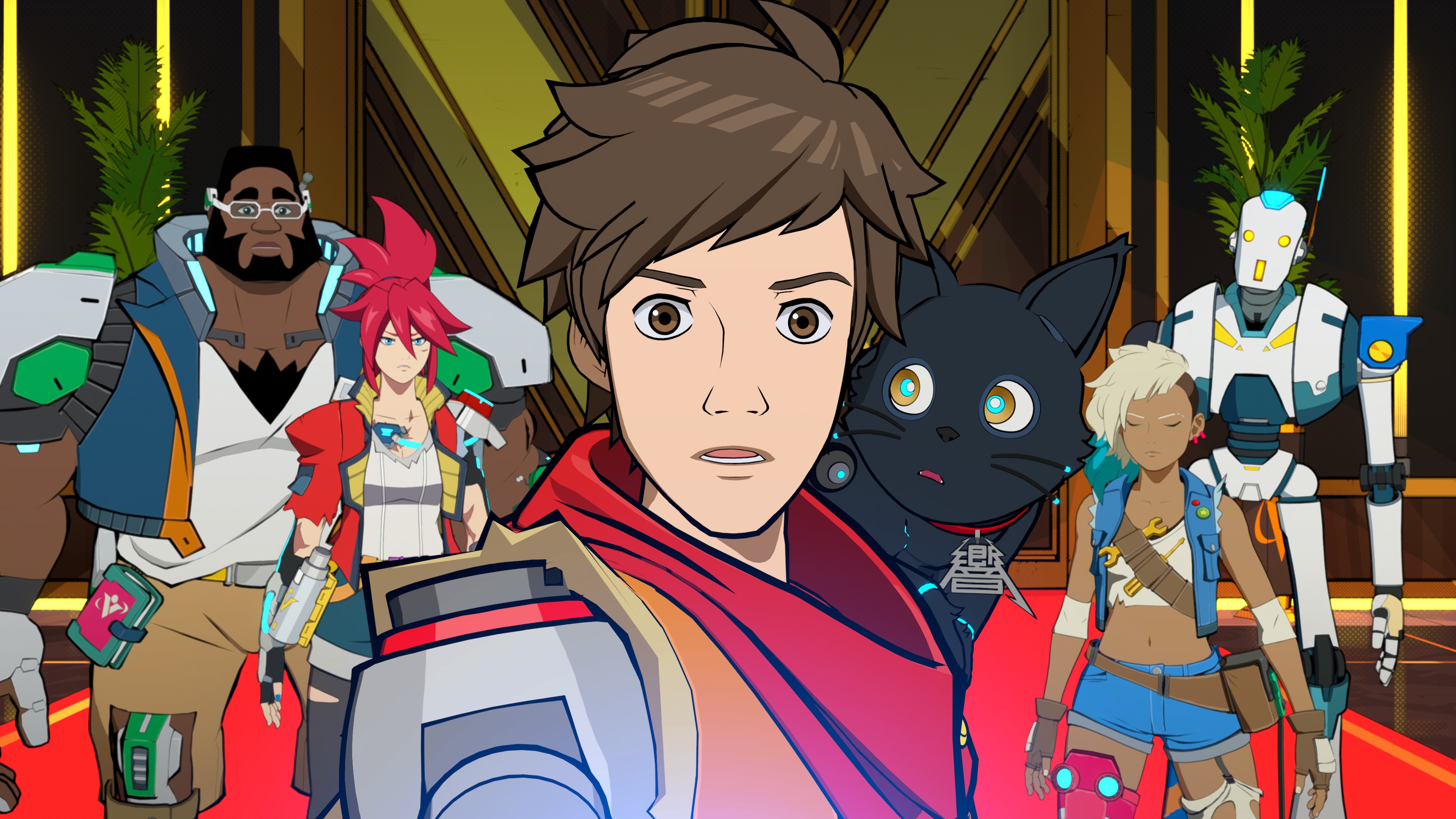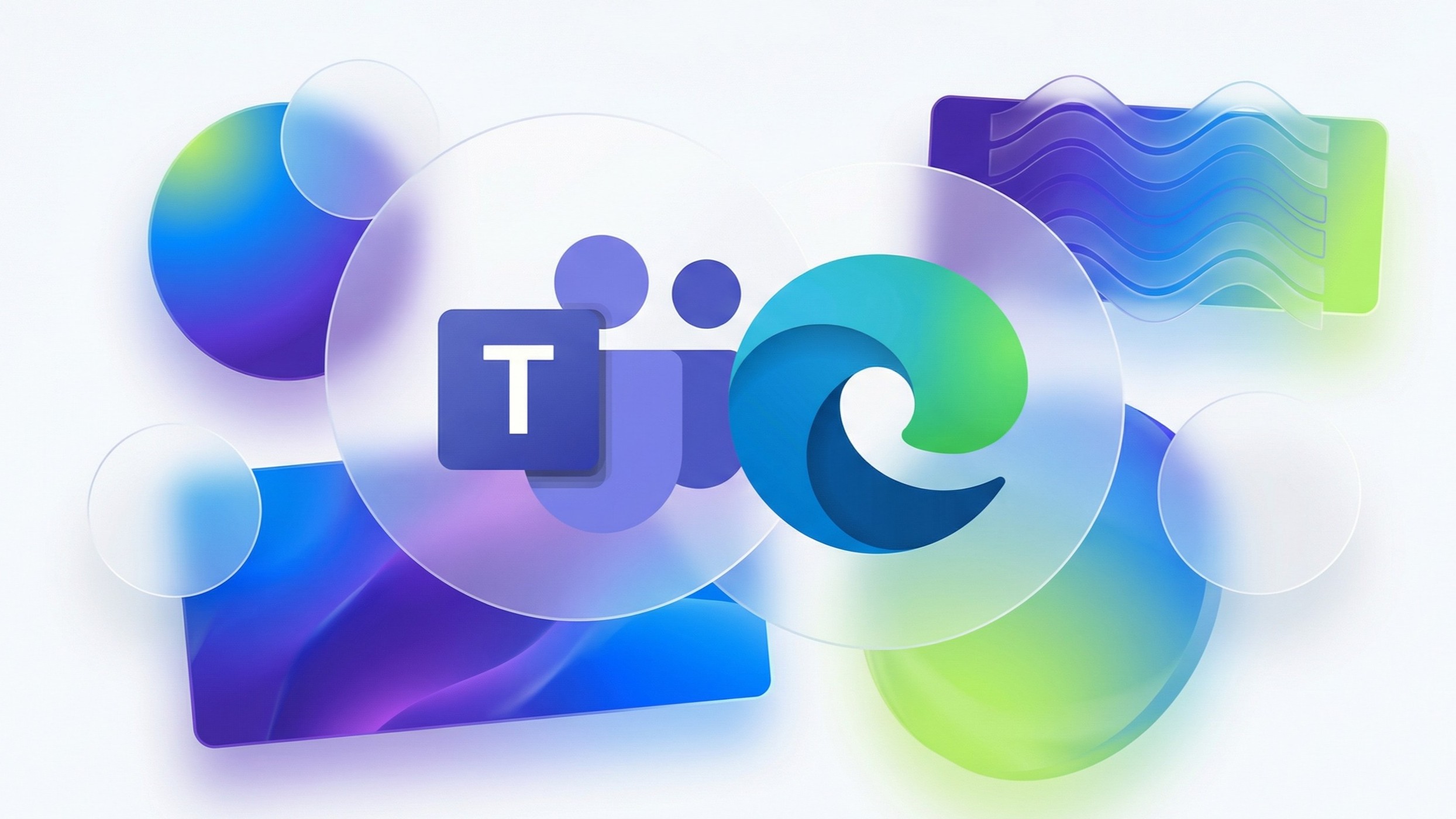"There's no one size fits all to it for us." Xbox President Sarah Bond quizzed on why Hi-Fi Rush developer was closed
The response doesn't really directly answer the question, but Bond did have some interesting statements about Xbox and its future.

All the latest news, reviews, and guides for Windows and Xbox diehards.
You are now subscribed
Your newsletter sign-up was successful
What you need to know
- Microsoft announced the closure of three studios this week: Arkane Austin, Alpha Dog Games, and Tango Gameworks, creators of the award-winning Hi-Fi Rush.
- Sarah Bond, President of Xbox, appearing in an interview with Bloomberg and was asked specifically why Tango Gameworks was closed considering Hi-Fi Rush's success for the brand.
- Bond's answer was that they look at a variety of factors when making decisions like this, and answered questions on the lack of video game industry growth, and it's impact on the business.
It's been a turbulent week for Xbox, to say the least, with its shock announcement of the closure of three game studios: Arkane Austin, Alpha Dog Games, and Tango Gameworks. Perhaps the hardest-hit of all three is the Hi-Fi Rush creator, Tango Gameworks, who has previously been lauded by Xbox executives themselves as a hit that pleased Xbox in all key measurements and expectations.
Sarah Bond, President of Xbox appeared yesterday in a Bloomberg interview where she spoke about the launch of an Xbox mobile store but was also asked a couple of tough questions by the interviewer who said "I know you're not the studio's chief, but how should we, how should gamers, understand that move in terms of Microsoft's commitment to developing innovative, exclusive games?"
Bond: "You know, it's always extraordinarily hard when you have to make decisions like that. You know, I'll go back to what I was saying about the industry. And when we looked at those fundamental trends, we feel a deep responsibility to ensure that the games we make, the devices we build, the services that we offer, are there through moments even when the industry isn't growing, and when you're through a time of transition. And the news we announced earlier this week is an outcome of that—and our commitment to make sure that the business is healthy for the long term. But that said, our commitment to having our own studios and working with partners to have games large and small. You know, we're a platform where you can play GTA, but you can also play Palworld where you can play Call of Duty, and you can also play Pentiment. That that doesn't change. And frankly, our commitment to Bethesda and the role that it plays is part of Xbox and everything we do."
Following some more chat about Indiana Jones and the Fallout TV show, the interview pressed Bond more specifically on the shuttering of Tango Gameworks.
"I think one of the things that was most upsetting both to Xbox gamers and to employees is that, you know, one of the shuttered studios in particular just created a hit game, did really well on Game Pass and in terms of engagement and won a ton of awards. Shouldn't exceeding in that ensure the future of the studio?"
Sarah Bond, being tasked with the job of being the first executive to answer this publically, said, "You know, one of the things I really love about the gaming industry is it's a creative art form, and it means that the situation and what successes for each game in the studio is also really unique. There's no one-size-fits-all to it for us. And so we look at each studio and each game team, and we look at a whole variety of factors when we're faced with making decisions and trade tradeoffs like that. But it all comes back to our long-term commitment to the games we create, the devices we build, the services, and ensuring that we're setting ourselves up to be able to deliver on those promises."
So there's our answer. On the surface, a nothingburger of an answer, as it didn't really directly address why Tango Gameworks specifically got the chop this week. Or did it? Despite the response to Hi-Fi Rush being Xbox's first real Game of the Year contender in recent times, perhaps Xbox just didn't see it as an essential part of its future. You can see the full interview below:
A tough industry
While we didn't get a direct answer the question on all of our minds right now, Bond did have more to say earlier in the interview on the video game industry right now, and it's stagnation, which gives important context to her answer here. By all important metrics, the industry isn't seeing the growth expected, in fact the most popular games last year were on average 7 years old and not new games.
The interviewer asked Bond what she thought caused this lack of growth and, more importantly, how Xbox could turn it around.
Bond "You know, the last year or so in video games, largely the industry's been flat. And even in 2023, we saw just some tremendous releases, tremendously groundbreaking games. But still, the growth didn't follow all of that. A lot of that's related to our need to bring new players in and make gaming more accessible. But all of that has been happening at the same time that the cost associated with making these beautiful triple-A blockbuster games is going up. And the time it takes to make them is going up. And so, so much of our focus, as Xbox, is about how we do things to help the industry all up, while also ensuring that our brand, you know, everything that we do is there through this moment of transition."
One small piece of a rapidly moving puzzle
It's hard to pinpoint what direction Xbox is going at the moment. Following the studio closures this week, another exec, Matt Booty, reportedly told staff that Xbox needs "smaller games". This news, which came in amid reports that Xbox cuts might not be finished. While we can argue back and forth all day over whether Hi-Fi Rush is classified as a 'small game' or not, one thing's for sure, Xbox fans are not happy that Microsoft reportedly turned down a sequel. Something that to outsiders would have made complete sense. The discontent has been palpable ever since the announcement of previously exclusive games, which included Hi-Fi Rush amongst them, were going to be launched on PlayStation and Nintendo. A move that, so far, seems to have been successful, at least in the short term, with Sea of Thieves topping the most downloaded charts for April on PlayStation 5 in Europe.
Short-term is the key phrase here; what does any of the above mean for the long-term health of Xbox as a brand and creator of exclusive games? Only time will tell, and it remains to be seen what studios and games are left to see that future. Despite a somber week, we have Ninja Theory's HellBlade 2 on the verge of launching and the Xbox Showcase to look forward to. Are you staying strapped into this rollercoaster with the rest of us?
All the latest news, reviews, and guides for Windows and Xbox diehards.

Jen is a News Writer for Windows Central, focused on all things gaming and Microsoft. Anything slaying monsters with magical weapons will get a thumbs up such as Dark Souls, Dragon Age, Diablo, and Monster Hunter. When not playing games, she'll be watching a horror or trash reality TV show, she hasn't decided which of those categories the Kardashians fit into. You can follow Jen on Twitter @Jenbox360 for more Diablo fangirling and general moaning about British weather.



